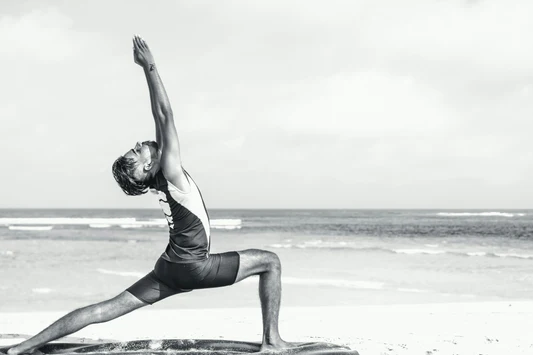EndurElite Chief Endurance Officer Matt Mosman discusses how flying to your next race might negatively impact your performance and what you can do about it.
9 Tips To Decrease The Effect Of Air Travel On Endurance Performance
- In advance of travel, shift the body clock to the new time zone through means of gradual, 1 h/day, shifts in sleep schedule.
- Circadian phase shifting can be facilitated by proper timing of light exposure and the use of supplemental melatonin, taken by mouth, in doses ranging from 2 to 5 mg.
- Exposure to natural daylight is preferred overexposure to artificial light.
- Expose travelers to social contact at times appropriate for local time at the destination.
- Avoid caffeine during travel, as this stimulant can interfere with appropriately timed restorative sleep and alter the ability to effectively adapt to a new time zone.
- Short (20–30 min) naps can be helpful in recovering from sleep deprivation and restoring a normal state of arousal.
- Consume extra fluids for the duration of air travel to combat dehydration. Avoid alcohol or caffeine, which act as diuretics and can add to fluid losses.
- If possible, make arrangements for dietary selections that are optimal for individual performance. While travelling, eat smaller meals before and during flight; and, upon arrival, time meals to match habits appropriate to the destination.
- If traveling outside of the country, avoid non-bottled water, raw or minimally cooked foods, and peel fruits and vegetables that have been washed.
Full Video Transcript:
Good morning, Family of Fast. Matt Mosman, the Chief Endurance Officer over at EndurElite. Welcome to the first episode of "Ask the Scientist," where I'll take one question a week from one of the members of the EndurElite Family of Fast and provide you with the research-backed answer, because we don't do none of that bro science here at EndurElite.
Why You Might Feel Bad After Flying To A Race
So the question I got today was from Tom T., and I quote, "Matt, why do I feel like two pounds of crap in a one pound bag after I fly to a race?" And really what it comes down is nutrition, hydration, circadian rhythms, jet lag, all these other things. So today what we're gonna answer or talk about is, you know, what the possible reasons may be why you feel like crap after you fly to a race, and then actually what you can do about these things so it doesn't happen.
And as always, we are gonna look at the research, and this time, it is by an individual by the name of Whitney Leatherwood. Doesn't that sound like a really smart name? And what Whitney did is she took a collection of a whole bunch of research papers on airline travel and athletic performance, and kinda singled out all these variables that could affect performance and what you can do about it to help prevent it in order to have a good race. And again, and I have my list here, it comes down to nutrition, hydration, jet lag, altitude, and circadian rhythms, according to this Whitney Leatherwood.
Nutrition Before, During, And After Your Flight
Now let's talk about nutrition first. Nutrition is so hard when you travel. Between food you get at the airport, those meals you get on the airlines, except for those little maple crisp waffle things. Man, I could run a train on those things all day long. Num num num num num num num num. Those are really good.
Back on point. So, basically, eating good while traveling is really hard. Airport food usually sucks. Food on the plane usually sucks unless you wanna spend like $80 on a can of Pringles, some gummy worms and a piece of chewing gum. So what the heck do you do?
Well, if you're at the airport you make the best choices you can. When you're on the plane, it would be nice to pack your own food, but you really can't do that, so you just go with the available options. So the easiest thing to do for nutrition-wise before you basically go on your flight to your races, eat good beforehand, and then when you get to your final destination, ideally you get a place where you can cook your own food that you're used to, so that you don't have to rely on like Chili's and eating baby back ribs and end up with a major gut bomb.
So just sticking to the foods you usually eat. If it's not possible to cook your own food there, you just do the best that you can. Ideally, you know, the day before the race or race day, you get in one high carbohydrates meal. You don't wanna go with anything strange that's gonna give you, you know, a gut bomb or cause stomach distress.So that's the nutrition part.
How To Hydrate During Flights
Hydration, and the one thing we're gonna look at here is basically getting dehydrated while you're flying. When you're in the airplane flying high in the sky, humidity in the plane is pretty decreased. Usually it's about 30% in the air. When you get in the airplane it's about 20%, so it's a little more dry. So you wanna drink water.
Now I'm not a fan of just chugging water just to chug water, but if you have about 16 ounces of some kind of fluid about every 2 to 3 hours, you'll stay in a hydrated state, and your eyeballs won't be floating and you won't have to run back to that tiny little restroom and take a piss later on. And then you'll be hydrated when you get off the plane and you continue this hydration strategy up until your race. So that's hydration.
How Jet Lag Can Affect Your Endurance Performance
Now let's talk about jet lag. What's jet lag? Well, it kinda has to do with your circadian rhythm, but with jet lag you might feel lethargic, tired, confused, fuzzy-headed, because you're basically throwing your body for a loop, especially if you're going to a different time zone.
So with jet lag, the only solid evidence I have seen as far as preventing jet lag, and it's actually pretty interesting, is one research study suggests fasting for 16 hours before you get on your plane, which I would be a freaking hungry bear and really hangry if that happened to me, but if it meant preventing jet lag, I would probably do it. I'm gonna touch some more on this in a second when I talk about circadian rhythms, but for jet lag, that seems to be the most useful strategy, fast for about 16 hours beforehand and that may help.
The Impact Of Altitude On Race Performance
Let's talk about altitude. So when you're up in the airplane, you're at like a cruising altitude of like 32,000 feet, which is really high, high up. And we all know that going to a basically higher altitude the day right before the race maybe isn't the best thing, but the research really isn't solid here.
Some people will suggest that when you fly high in an airplane that it could affect performance the next day, but I don't know if I'm really sold on this. But I mean, ideally if you're traveling to a race, that's say on a Saturday, in an ideal situation, you would wanna arrive like two to three days early to kinda well, address all these things and make all these things better as far as the jet lag, the altitude, nutrition, hydration.
But sometimes that just isn't practical because we all have nine to five jobs, kids that always need their butt wiped and all these other chores around the house. But if you can do it, that's a solid piece of advice right there. Get to your destination two to three days before your race so your body can kinda adjust.
How Circadian Rhythms Are Affected By Air Travel
Now the last point we're gonna talk about, and this is probably the big one that will usually screw up your race the most, and this is circadian rhythms. And these things basically dictate when you eat, when you sleep, when you poop. It's like your biological clock. So if you're flying from West Coast to East Coast or vice versa and you're in a different time zone it's just throwing your body for a loop.
You know, your body doesn't know when to sleep because of the light, it doesn't know when to eat because it's just...it's just all messed up with circadian rhythm, so what are you gonna do so your circadian rhythms don't get too out of whack? Well, one practical suggestion is two weeks before the race kinda get on that other time zone schedule, meaning, you know, go to bed two hours earlier, two hours later to get your body adjusted. But again, that's really not practical because you have stuff to do.
Another effective strategy, and this one is probably more practical, is kinda control light exposure, exposure to natural light. So if it's like six o'clock at night, it's a couple of hours before bedtime and, you know, you're trying to link up with your time zone, kinda pull the shades, get it dark, get your body used to it. Again, not the most practical suggestion, but it's something.
Melatonin Can Help Regulate Circadian Rhythms
Now, probably my favorite thing to do is if you need to kinda reset your circadian rhythms for this different time zone is to take the supplement melatonin, about three to five milligrams, right when you wanna go to bed according to the time zone you'll be racing in, and I would do this about a week before you go to your race and then your body will kinda get naturally adjusted to it and when you get to the race day, you shouldn't need the melatonin because you'll be good to go, your body will be adjusted and yeah.
So that's about it on how you can prevent yourself from feeling like total ass when you fly to your next race or event or just in general if you go anywhere. These are things you can do so you'll race better or feel better etc. So, that concludes episode one of "Ask the Scientist." If you have a question that you want me to answer, comment below and I will address them, answer them, give you the research-backed answer on them, and give you lots of knowledge.
So, that is all I have today, EndurElite Family of Fast. If you want other videos like this on endurance training, nutrition, supplementation, random musings, and everything in between, subscribe to the EndurElite YouTube channel or head on over to the EndurElite blog at www.endurelite.com. Get social with us on Instagram and our super cool EndurElite Family of Fast Facebook page, and until next time my endurance friends, stay fueled, stay focused, stay fast, and most importantly, stay informed
.


